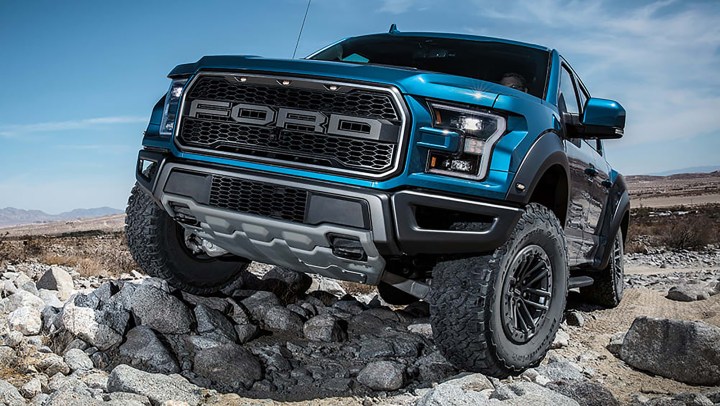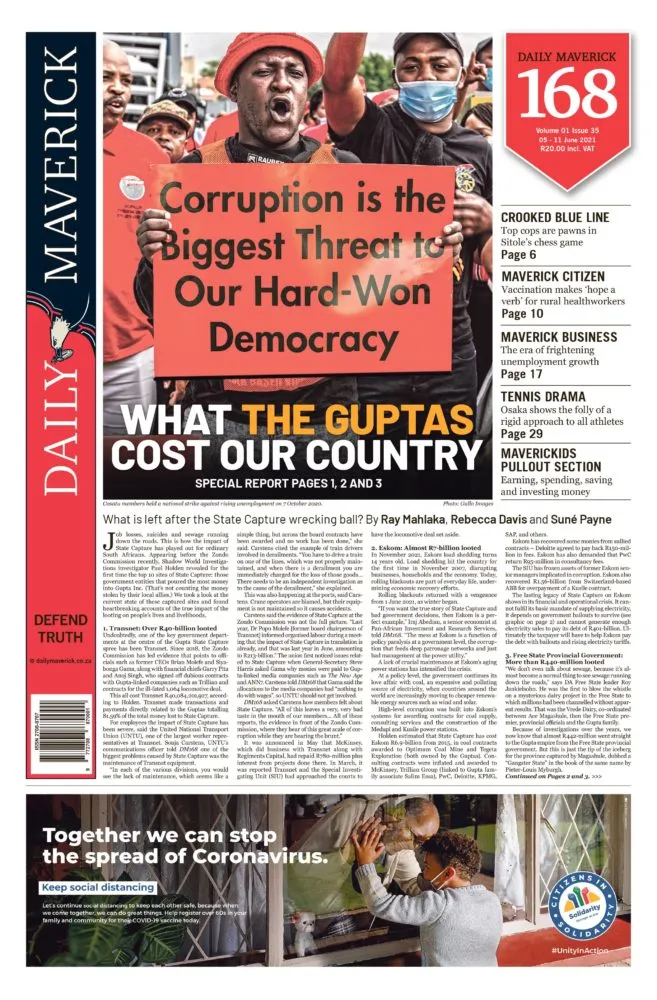VROOM WITH A VIEW
Coming soon to a car dealership near you: Anyone for a tax-dodging electric bakkie?

Right, hold tight, this is a mouthful. The 'Joint Statement issued at the conclusion of the 30th BASIC Ministerial Meeting on Climate Change hosted by India on 8th April 2021' is not exactly a cracking read, but point number 19 is rather interesting. In it, the BASIC countries’ environment ministers 'expressed grave concern regarding the proposal for introducing trade barriers, such as unilateral carbon border adjustment, that are discriminatory and against the principles of Equity and CBDR-RC'.
First published in the Daily Maverick 168 weekly newspaper.
Of course, this is unintelligible, but what it contains is the most serious skirmish in a brewing trade dispute between China, India, Brazil and the EU. We are the wag-’n-bietjie caught on China’s sock along for the ride, helping to make up the BASIC nations, which are the BRICS nations without Russia – that is, Brazil, South Africa, India and China.
What did Minister Barbara Creecy of Forestry, Fisheries and the Environment object to? She objected to the concept of a Carbon Border Adjustment Mechanism (CBAM). In English, it’s a border tax established by the EU to protect its future carbon-compliant industries from cheaper imports from jurisdictions that don’t have such strong environmental legislation in place, or what they call “carbon leakage”.
The actual draft legislation is designed to be World Trade Organization-proof and will be released later this month, but the principles are well established. The law will arrive in 2023 with a focus on the really carbon-heavy stuff, such as iron, steel, concrete, fertilisers and petroleum products. But this could be the start of a new reality in international business that will be familiar to SA operations navigating BBBEE procurement requirements. Accounting for carbon will happen at the EU border unless it is done at the point of origin, and you can be sure that this principle will cascade from steel girders in 2023 to Cederberg citrus and boutique small-batch Syrahs within a few years.
Whatever the detail, it is possible that our government will need to impose a carbon tax on exports to the EU, which would, in theory, remove the requirement for such a tax at the EU border. This means that no matter who does the taxing, and if your product ends up in the EU, over the coming decade you may need to bolster your margins to prepare for the additional tax burden. Alternatively, you will need to remove as much carbon from your operations as possible, because you can be sure that any tax extracted in this country is more likely to be used to install some fabulous new curtains at the health minister’s house than help SMMEs prepare for a low-carbon economy.
Of course, there’s a great deal of debate to be had, not least this year at COP26, the bunfight convened to measure various nations’ progress on their commitments in the Paris Agreement. The BASIC nations say – not without reason – that the concept is unfair and amounts to countries that developed their economies on the back of carbon emissions imposing the relief required to mitigate against climate change on to poorer nations. It is not unreasonable to expect some debate and horse-trading on this in terms of the “Common but Differentiated Responsibilities and Respective Capabilities” understanding of countries’ capabilities to make these changes (the “CBDR-RC” of the ministers’ statement at the top of this column).
What does this all mean for transport? There’s a burgeoning interest in corporate South Africa and in the government to develop a “hydrogen economy” in SA, using renewables to create hydrogen for shipping and haulage. Toyota old hand Johan van Zyl is advising the government, which is useful for Toyota because it has somewhat bet the farm on hydrogen instead of battery tech.
But I think more interestingly, the change that is coming is the use of electric vehicles for deliveries and light commercial work. Now, some of you at this point will be squealing that there is no carbon “value” to an electric vehicle in SA – or, indeed, anything that runs off electricity – because of the coal we burn to generate the stuff, but all SA has to do is to stick to the Integrated Resource Plan to make significant progress in this regard.
In any case, you may have missed the moment last week when Ford in the US released an electric version of the F-150 bakkie. This is an important moment because of two things: one, the number of these things Ford sells is simply mind-boggling – in 2019 it was selling one every 29 seconds – and because this is an electric truck, the F-150 Lightning. Marketed as “Built Ford tough” and exhorting people to “expand your definition of what a truck can be”, this is an interesting view of the near future – a bakkie marketed to bakkie drivers in terms of its ability to tow, haul and carry.
At $42,000 for a base model it’s not likely to make too many hillbillies more sustainable, and nor will it likely make it on to any local sites or farms, but Ford is merely part of the staggeringly fast electric evolution of the motor industry, with similar products due soon from GMC, Chevrolet, Rivian and Tesla. This is nothing compared to what’s happening in China, though.
China’s desire to dominate this era of mobility is the country’s second stab (the first effort was scuppered by China’s taste for Western automotive products instead of its own). As a consequence of this renewed effort, Bloomberg tells me that various subsidies and support have resulted in there being 846 registered car makers in the country, most of which this correspondent has never heard of, and which focus on battery-electric power. In Europe, most domestic manufacturers will sell you an electric delivery van.
Now, as Bloomberg points out, this is a fairly brutal shakedown waiting to happen, but affordable electric bakkies and delivery trucks and vans are already proliferating. This means that whatever the EU announces in a couple of weeks, it is possible that it will be a slice of our light commercial segment that goes electric first. DM168
Alexander Parker is a journalist and consultant.
This story first appeared in our weekly Daily Maverick 168 newspaper which is available for free to Pick n Pay Smart Shoppers at these Pick n Pay stores.




















 Become an Insider
Become an Insider
The electric change will happen quicker than we think. And in addition around 70% of our motor exports are to Europe and are ICE. Unless our manufacturers change very quickly they will be supplanted by one or more of Tesla, Rivian, or some of the 800+ Chinese manufacturers.